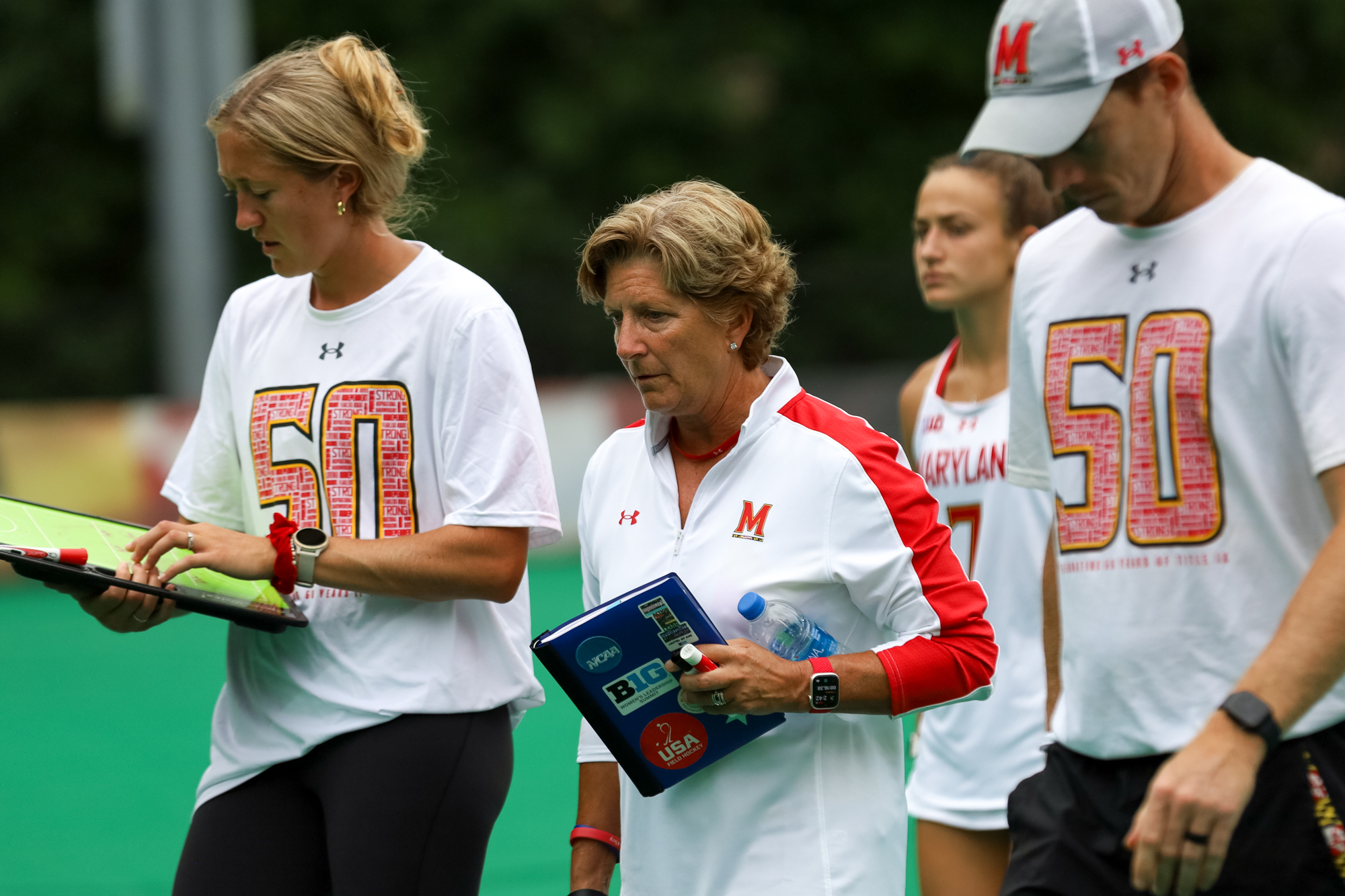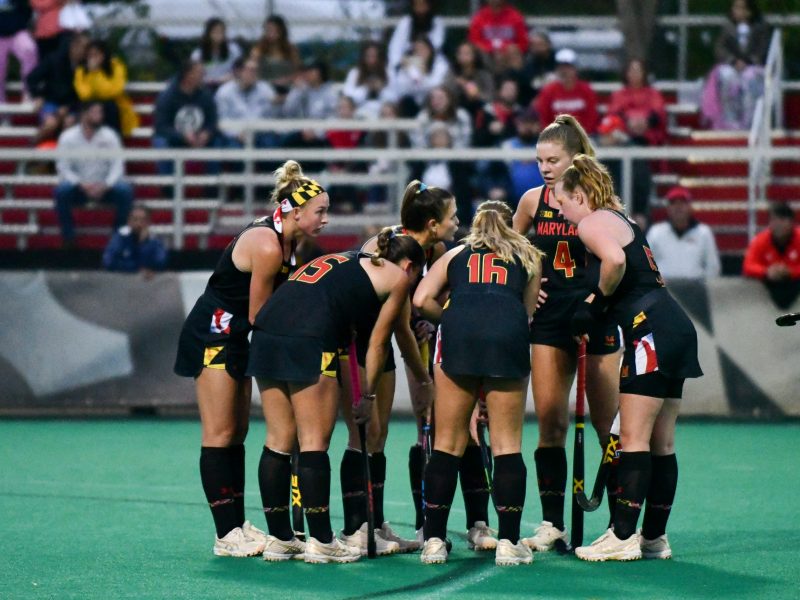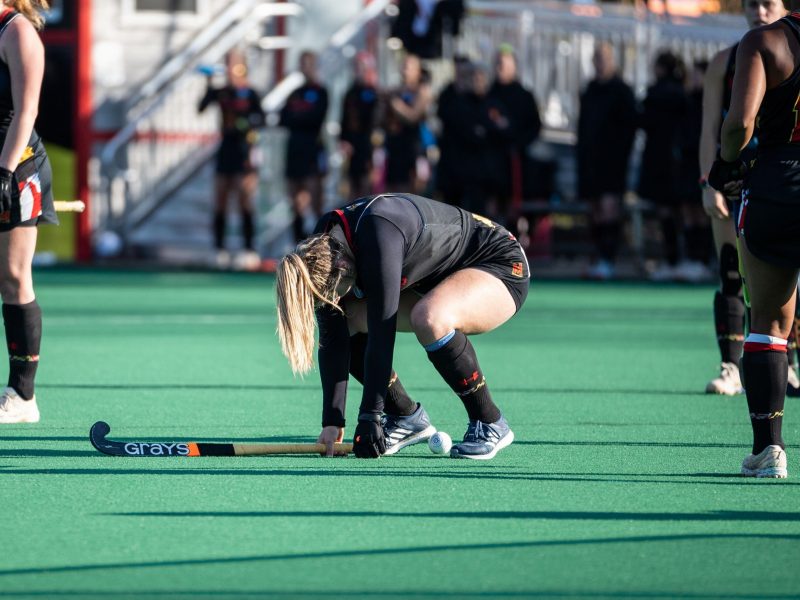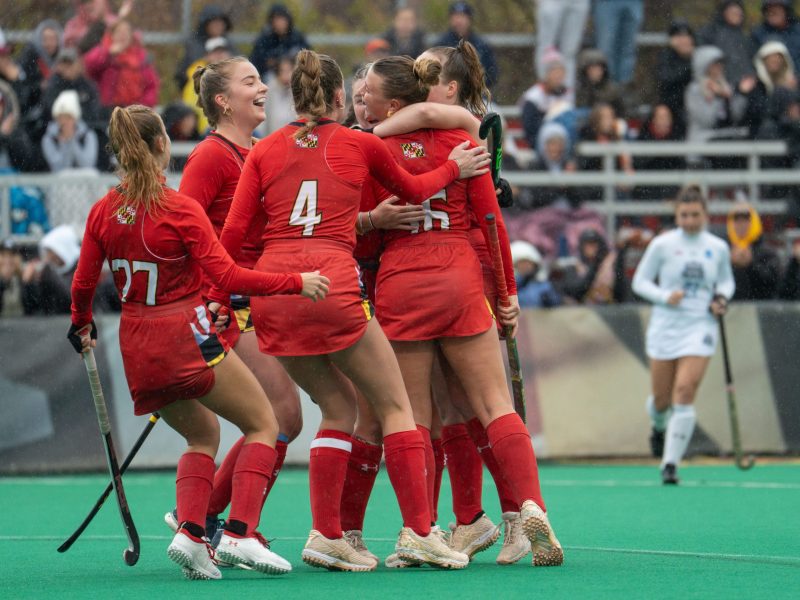Coach Missy Meharg met with each of her players after Maryland field hockey’s tight loss to Northwestern in the national semifinal. They reflected on the season together, discussed plans for the offseason and figured out how to move on from a second consecutive loss in the Final Four.
She also gave each Terp a question and told them to jot down their answers.
“What is success to you?” Meharg asked.
Maryland hasn’t achieved Meharg’s own definition of success in over a decade. The Terps’ last national championship came in 2011, and they’ve appeared in just one title game since. On the heels of back-to-back losses in the semifinal, the end goal within reach but never grasped, the hunger for another championship is more present than ever for the coach of over 30 years.
The 2022 iteration of Maryland appeared poised to be the team to finally break through. The Terps finished the year undefeated at home, went 7-1 in the Big Ten and almost always found a way to come out on top in tight games.
They won nine of their 12 one-score games and six of seven overtime matchups, capped off by a victory in sudden-death shootouts over Syracuse in the national quarterfinals. That resilience carried Maryland to one of its best regular season finishes in program history relented come November.
[Maryland field hockey falls to Northwestern in NCAA tournament semifinal, 2-1]
Meharg chalked up the dropoff, particularly for Maryland’s offense, to an uptick in the quality of opposing goalkeepers as well as a lack of finishing and concentration on open looks at the net. She also said teams began adjusting how they defended her squad’s once-potent attack.
“People started picking off our key big plays,” Meharg said. “We’ve struggled with change at that time. We had seen a lot of our straight shots … not going in against more sophisticated goalkeeping.”
The Terps scored on just one of their 35 penalty corner opportunities across five postseason games, as a unit that was excelled in the regular season crumbled.
Other offensive metrics took a step back, too. An offense that led the nation in goals in the regular season and averaged nearly four of them per game scored only 2.4 goals per postseason battle. Maryland also attempted noticeably fewer shots and shots on target per game in the postseason than it did in regular season play.
“You need to execute them to a tee,” Meharg said regarding her squad’s penalty corner shortcomings. “Every piece of the corner, whether it be the push up, stick stop, the type of pass the stick stopper gives, the movement of the support players, everything is so detailed.”
The Terps also began facing teams for the second and third time in the postseason. That compounded their struggles as opponents began molding their styles of play to slow down Maryland.
[Bibi Donraadt, Riley Donnelly head to Final Four in last dance with Maryland field hockey]
Defensively, Meharg deployed an aggressive new-look press in an attempt to counter the teams that grew familiar with the Terps. The downside to that all-in approach is that it can fatigue a backfield quickly, which ended up happening.
“I went for broke, but I also ran their legs out,” Meharg said. “We played a high point crest all during postseason and never let up. That’s what took us to the Final Four … I love the way we played. I wouldn’t change a thing. I would love to have had just a little more decision making and poise in the circle.”
Meharg didn’t want to know what each player penned in their notebooks during their meetings back in November. She instead told her squad to keep their definitions of success to themselves, allowing their various interpretations of the word to marinate over the winter.
They’ll read them aloud as a group when the team reconvenes in January to start the offseason training program. Meharg hopes it will take players back to how they felt immediately after another heartbreaking finish to a season that failed to meet the coach’s expectations.
Reuniting next month marks the beginning of the 2023 journey, which will start by drawing back on past feelings of defeat. Meharg hopes it ends with Maryland claiming its ninth championship in program history.
“We all want to be national champions, and for whatever reason, we weren’t good enough to be,” Meharg said. “We need to look at what that word really means.”



